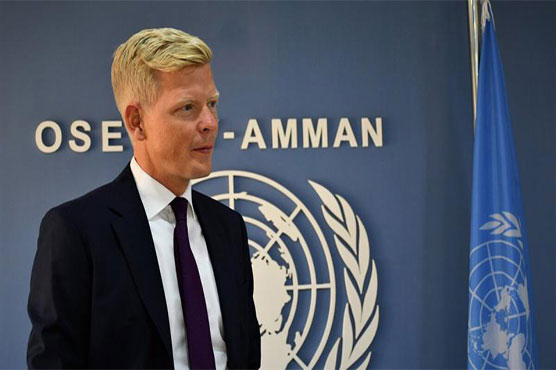UN envoy calls for 'inclusive settlement' to end Yemen war

UN special envoy for Yemen called for an "inclusive political settlement" to end the conflict.
DUBAI (AFP) - UN special envoy for Yemen Hans Grundberg called on Wednesday for an "inclusive political settlement" to end the conflict, as he wrapped up his first visit to the war-torn country.
His statement comes as fighting between Iran-allied Huthi rebels and pro-government troops backed by a Saudi-led military coalition for the key northern city of Marib has intensified in recent weeks.
The escalation has also raised fears for the more than two million people who have fled to Marib province to escape fighting in other parts of the country.
"The humanitarian and economic impact of the war becomes more difficult to reverse with every passing day. The war has turned daily life into a struggle in Yemen," Grundberg said, according to a statement.
"There is an urgent need to change course and work toward an inclusive political settlement that comprehensively ends the conflict and allows Yemen to recover and develop."
Grundberg met with a number of Yemeni officials, including Prime Minister Moeen Abdulmalik Saeed, in the interim capital Aden, where the government has been based since the rebels seized the capital Sanaa.
The pair discussed the economic situation and the challenges of delivery of basic services, the statement said.
Hundreds of insurgents and pro-government troops have died in recent weeks after the rebels renewed their campaign for Marib, the government s last stronghold in the country s oil-rich north.
The Huthis initially escalated their efforts to seize Marib in February, hoping to gain control of the region s oil resources and strengthen their position in peace talks.
About 120 kilometres (75 miles) east of Sanaa, Marib sits at a crossroads between the southern and northern regions and is key to controlling Yemen s north.
Tens of thousands of people have been killed and millions have been displaced in the war that erupted in 2014 after the Huthis seized the capital.
About 80 percent of Yemen s 30 million people are dependent on aid, in what the United Nations calls the world s worst humanitarian crisis.

